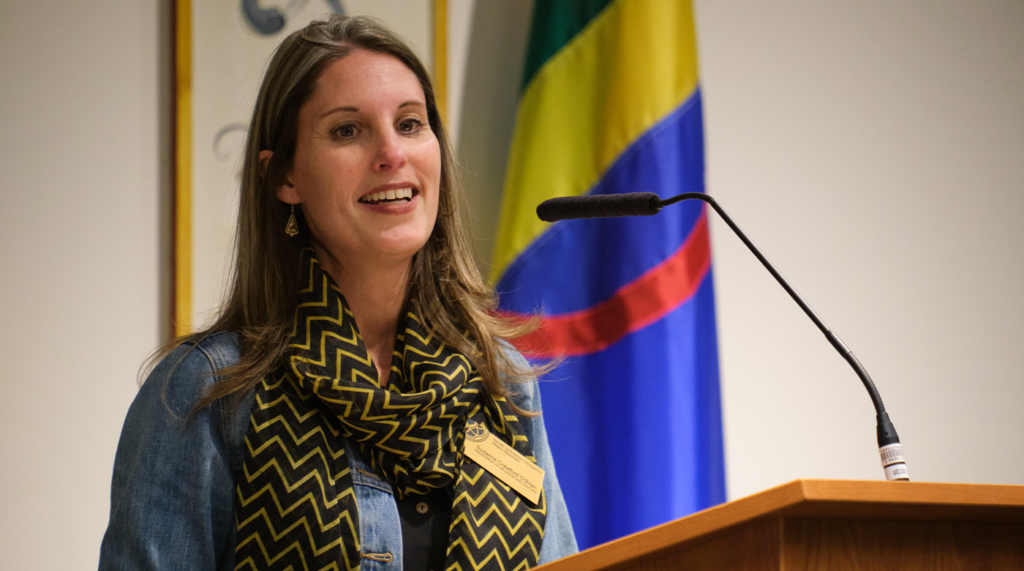Page 17 • (1,853 results in 0.036 seconds)
-
experimental and computational researchers, drawing on UNT’s world-class resources in both instrumentation and high-performance computing. Possible research areas include: Light-Harvesting Organic/Metal-Organic Materials * Computational Catalyst Design * Transition Metal Catalysis for Organic Synthesis * Electrochemical Characterization of Semiconductor Materials * Porous Materials for Environmental Remediation * Gas-Sensing Materials * Pharmacological Modeling of Illicit Substances * Organometallic
-
his third book of poems, Chord. This is my last year as Dean, and I’m delighted to report that Professor Kevin O’Brien of the Religion Department will be taking the reins. Kevin is a respected scholar of Christian environmental ethics (check out his most recent book in the “Booknotes” gallery) who has served in various leadership positions on campus—including Chair of Environmental Studies and the Faculty Representative to PLU’s Board of Regents. It’s been a great pleasure to meet and communicate
-
. Students will also receive classroom training in topics pertinent to the emerging field of computational biology, such as computational structural biology, cell and systems modeling, computational genomics, and bioimage informatics. Additionally, TECBio students will participate in a weekly journal club, attend research and career seminars organized specifically for the program, take part in an ethics forum that will instruct them in the responsible conduct of research, present their work at a
-
microscopy, X-ray diffraction, and computational methods to study materials and molecules at interfaces. All students will also take part in a professional development and ethics training program, with a focus on science communication and preparation for graduate school or industrial careers. Through independent research projects and the workshop and seminar series, this site seeks to broaden the participation in STEM. Preference will be given to applications received by March 1st. Visit https
-
Four Semester Hours HIST 248 – Innovation, Ethics, and Society (S0), PHIL 248 – Innovation, Ethics, and Society (PH), or HIST 346 – History of Innovation and Technology (SO) 2) Innovation Principles Eight Semester Hours Economics principles (4 credits from the following): ECON 111: Principles of Microeconomics: Global and Environmental Design and Communication principles (4 credits from the following): COMA 215: Writing in Communication Careers 3) Elective Four Semester Hours COMA 361: Public
-
verbal), “Research Boot Camps” providing intensive training in computational and experimental research methods, and a scientific ethics component. The application deadline is Friday, March 6, 2020 (Early application is encouraged). Learn more via the UNT-REU Flyer 2020 or visit online: nsfreu.chemistry.unt.edu Read Previous WWIN Star Scholarship Accepting Applications Read Next Summer Research Program at Pitt LATEST POSTS ACS Diversity, Inclusion, Equity, and Respect (DEIR) Scholarship May 7, 2024
-
your comfort zone. Most of your barriers are only in your mind. What surprised him about studying away: I was surprised how much my lifestyle changed after study away. Living without internet and my phone in a small community at Holden village stuck with me even after I left. Upon returning from Holden, I deleted my facebook account and asked more questions about the environmental ethics of my lifestyle. Upon returning from a semester in Vienna Austria, I found a new desire to take my second
-

year really motivated both students and faculty, and we were able to bring that motivation into the classroom through applied projects. Faculty were able to bring these issues into discussions of literature, history, philosophy, ethics, and environmental equity. How have faculty, staff and students responded to that challenge? I’m continually amazed at how my colleagues pivoted so quickly to online classrooms, how they spent the entire summer learning very different kinds of pedagogies and
-
microscopy, X-ray diffraction, and computational methods to study materials and molecules at interfaces. All students will also take part in a professional development and ethics training program, with a focus on science communication and preparation for graduate school or industrial careers. Through independent research projects and the workshop and seminar series, this site seeks to broaden the participation in STEM. Preference will be given to applications received by March 1st. We strongly encourage
-
, violence, gender, ethnicity, religion, and environmental concerns. HIST 248 – Innovation, Ethics, and Society – SO (4) PHIL 248 – Innovation, Ethics, and Society – PH (4) Two courses covering a history of innovation, problem solving, and creativity in the global economy, emphasizing the ethical considerations that arise as a result of new products and initiatives, disruptive technologies, globalization, and cultural change. Both courses emphasize clear writing and communication practices, teamwork, and
Do you have any feedback for us? If so, feel free to use our Feedback Form.


